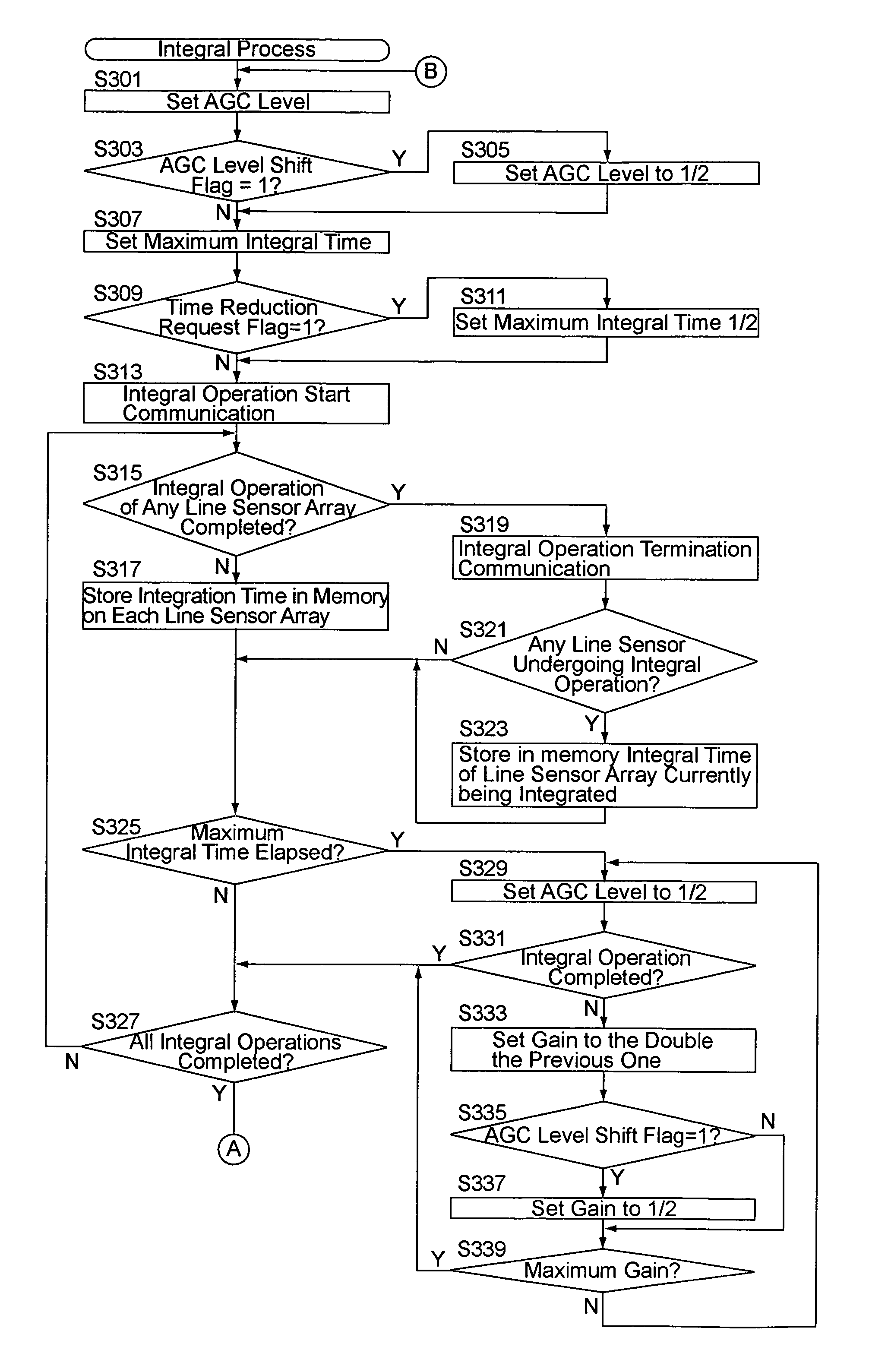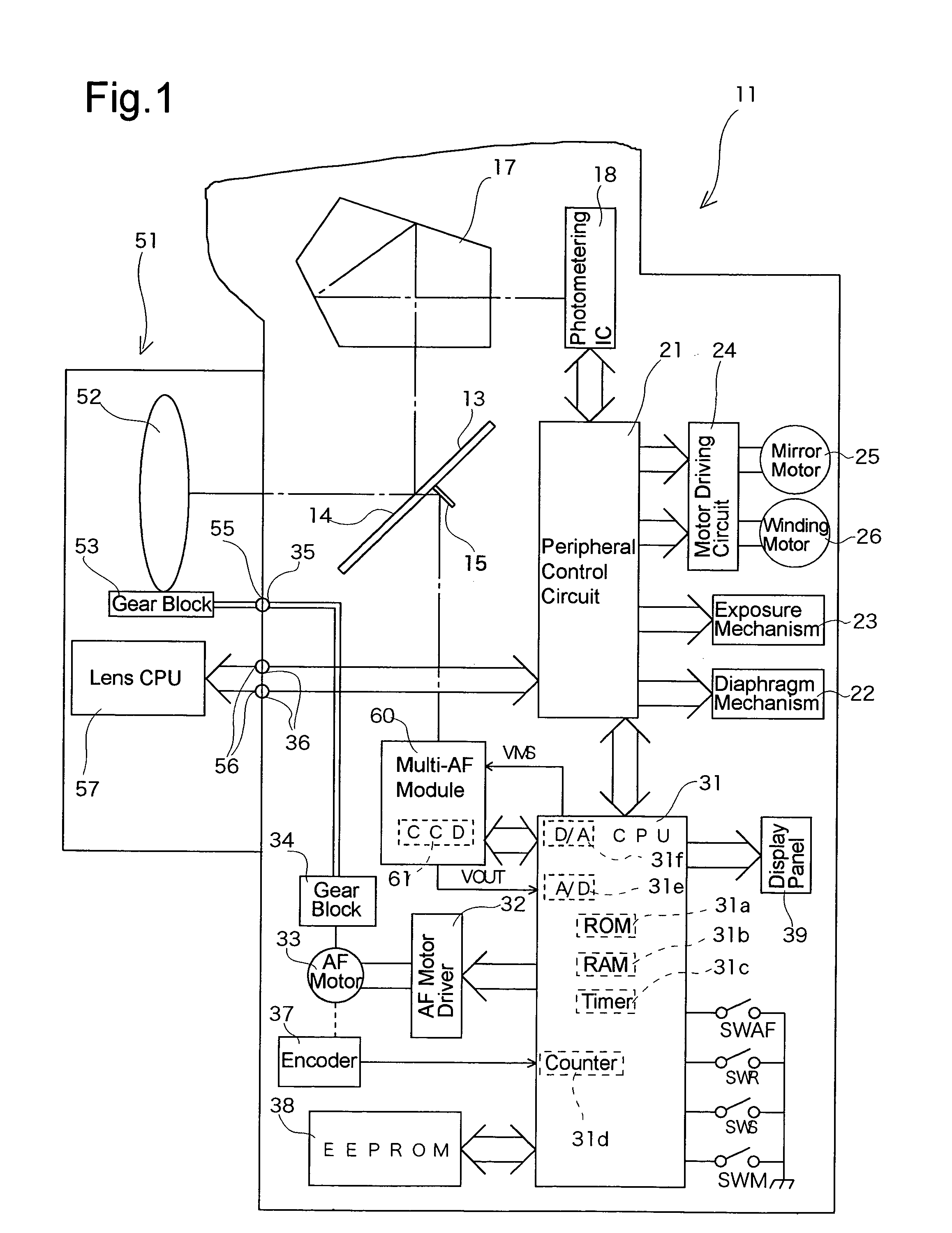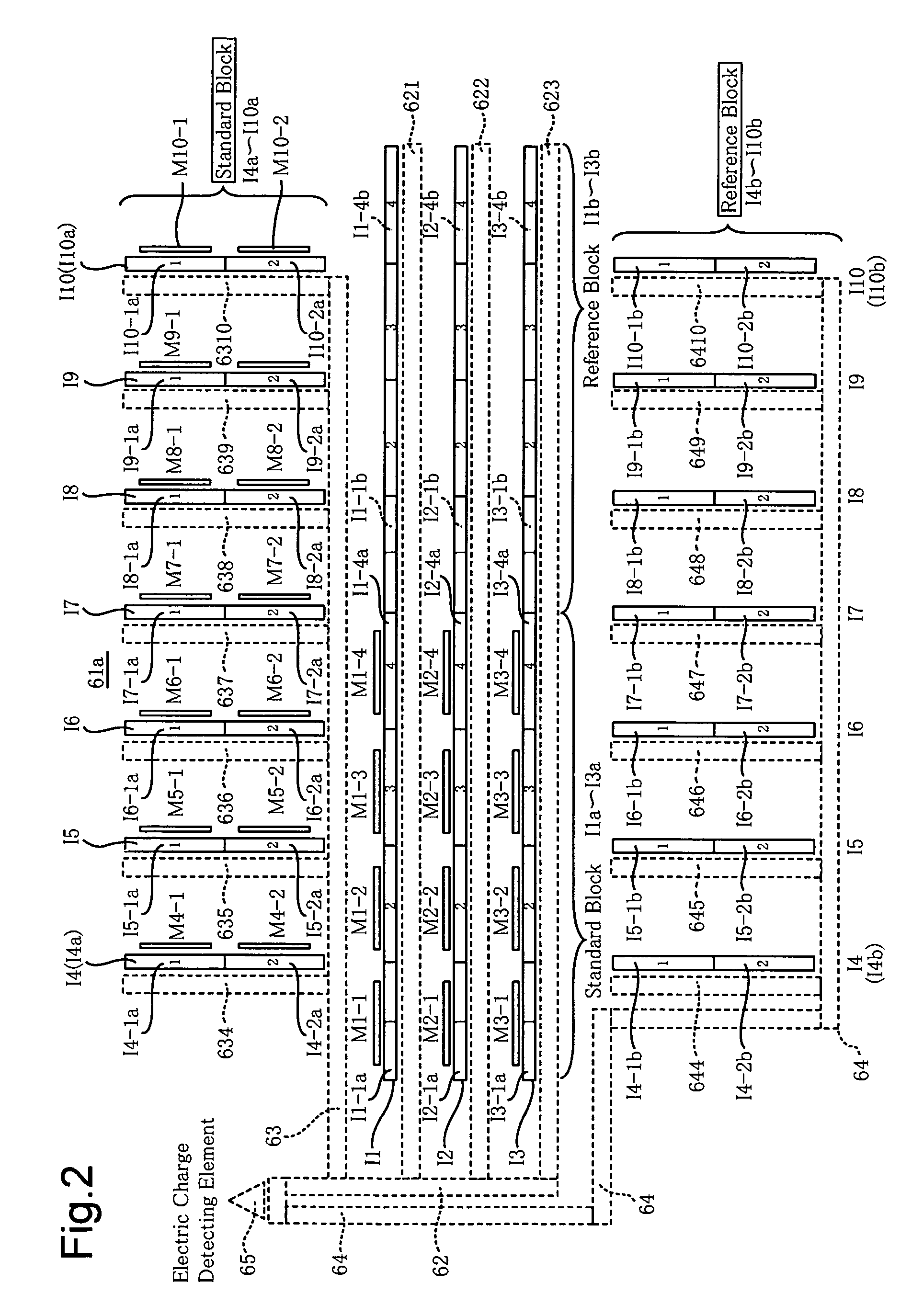Focus detection system
a detection system and focus technology, applied in the field of focus detection systems, can solve the problems of increasing the integration time and the operating time of autofocusing operation, reducing the amount of light which illuminates the light receiving surface of each line sensor, and affecting the focusing effect of the camera
- Summary
- Abstract
- Description
- Claims
- Application Information
AI Technical Summary
Benefits of technology
Problems solved by technology
Method used
Image
Examples
Embodiment Construction
[0026]FIG. 1 shows a block diagram of the main components of an AF single-lens reflex camera to which an embodiment of the present invention is applied. The AF single-lens reflex camera includes a camera body 11 having incorporated therein a multi-AF module (multipoint focus detection module) 60 with a CCD focus detection element 61, as a focus detection element, and an AF photographing lens 51 detachably attached to the camera body 11. The camera body 11 includes a body CPU 31 which generally controls the camera body 11 and the photographing lens 51, and which functions also as a selection device, a discrimination device, and a reliability judging device.
[0027]The photographing lens 51 is provided with a lens CPU 57 which controls the lens function. The camera body 11 includes a peripheral control circuit 21 which receives and transmits lens data and AF lens driving data, etc., from and to the lens CPU 57 provided in the photographing lens 51.
[0028]A large part of an object light b...
PUM
 Login to View More
Login to View More Abstract
Description
Claims
Application Information
 Login to View More
Login to View More - R&D
- Intellectual Property
- Life Sciences
- Materials
- Tech Scout
- Unparalleled Data Quality
- Higher Quality Content
- 60% Fewer Hallucinations
Browse by: Latest US Patents, China's latest patents, Technical Efficacy Thesaurus, Application Domain, Technology Topic, Popular Technical Reports.
© 2025 PatSnap. All rights reserved.Legal|Privacy policy|Modern Slavery Act Transparency Statement|Sitemap|About US| Contact US: help@patsnap.com



